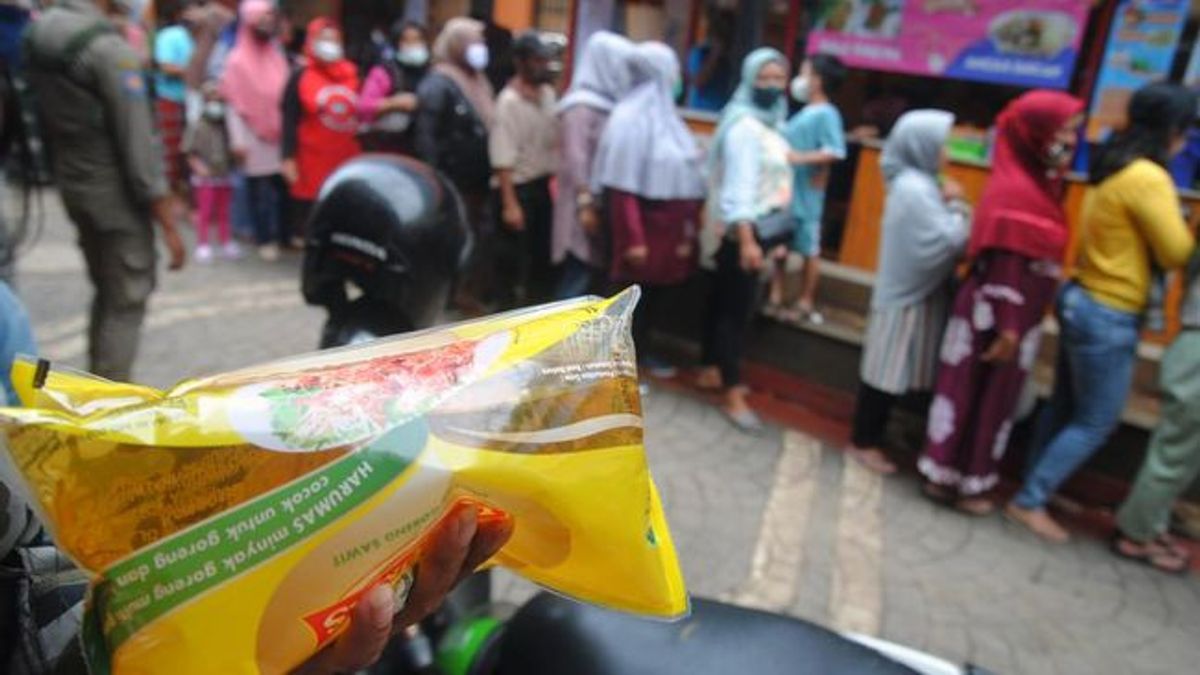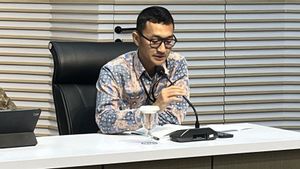JAKARTA - The Anti-Corruption Society (MAKI) considers the verdict against five defendants in the corruption case in the approval of the export of crude palm oil (CPO) does not fulfill a sense of justice in the community.
"Frankly, I am disappointed, I ask the Attorney General's Office, the public prosecutor to file an appeal as a form of feeling dissatisfied with this decision because the public feels injustice," said MAKI Coordinator Boyamin Saiman when confirmed, Thursday, January 5, as reported by Antara.
The panel of judges at the Jakarta Corruption Court (Tipikor) sentenced five defendants in a corruption case in the approval of the export of crude palm oil or CPO lower than the demands of the Public Prosecutor (JPU) of the Attorney General's Office (AGO). The reason is that in the trial, state losses were not proven.
The verdict against five defendants, namely the Director General (Dirjen) of Foreign Trade of the Ministry of Trade (Kemendag) Indra Sari Wisnu Wardhana was sentenced to three years in prison, a fine of Rp. 100 million, a subsidiary of two months.
Furthermore, the defendant Commissioner of PT Wilmar Nabati Indonesia Master Parulian Tumanggor was sentenced to 1.5 years in prison, a fine of Rp. 100 million, a subsidiary of two months.
Senior Defendant Manager of Corporate Affairs PT Victorindo Alam Lestari Stanley Ma was sentenced to one year in prison, a fine of Rp. 100 million, a subsidiary of two months.
Then, the defendant Lin Chie Wei alias Weibinanto Halimdjati, a former member of the Coordinating Minister's Assistance Team for Economic Affairs, was sentenced to one year in prison, a fine of Rp. 100 million, a subsidiary of two months.
General Manager (GM) of the General Affairs Section of PT Musim Mas Pierre Togar Sitanggang was sentenced to one year in prison, a fine of Rp. 100 million, a subsidiary of two months.
"Talking, indeed disappointed. It is proven that Article 3 abuses authority and makes the people's economy chaotic. How come the sentence is three years for state officials, for the private sector only 15 years, and others one year," said Boyamin.
However, Boyamin respects the judge's decision. However, he likened the verdict to Article 3 but was sentenced to Article 5 concerning bribery. Because only the bribe decision was sentenced to five years.
This is so ironic. It was stated that he was proven to have violated Article 3 of the Corruption Law on abuse of authority, causing state and state economic losses, but the punishment was light as regulated in Article 5 concerning bribery," he also said.
According to Boyamin, this decision is not comparable to what has happened in society when cooking oil is lost on the market, it must be jostled, queued for hours, but on the other hand it is suspected that there are entrepreneurs who can sell CPO abroad to make big profits, enrich themselves, and allegedly with the help of unscrupulous officials.
"So we have to make an appeal to get higher justice," said Boyamin.
Boyamin hopes that through the means of appeal, judges at the appeal level can severely punish the cooking oil case, so that a sense of justice is fulfilled in society.
"Hopefully the appeal court judge declares guilty and can give another harsh sentence. A maximum of 20 years or a lifetime," he said.
The English, Chinese, Japanese, Arabic, and French versions are automatically generated by the AI. So there may still be inaccuracies in translating, please always see Indonesian as our main language. (system supported by DigitalSiber.id)








